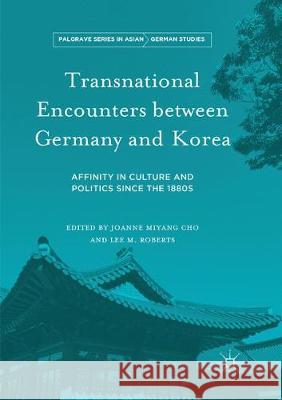Transnational Encounters Between Germany and Korea: Affinity in Culture and Politics Since the 1880s » książka
topmenu
Transnational Encounters Between Germany and Korea: Affinity in Culture and Politics Since the 1880s
ISBN-13: 9781349957668 / Angielski / Miękka / 2018 / 328 str.
Kategorie BISAC:
Wydawca:
Palgrave MacMillan
Seria wydawnicza:
Język:
Angielski
ISBN-13:
9781349957668
Rok wydania:
2018
Wydanie:
Softcover Repri
Ilość stron:
328
Oprawa:
Miękka
Wolumenów:
01











